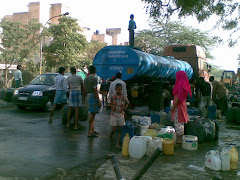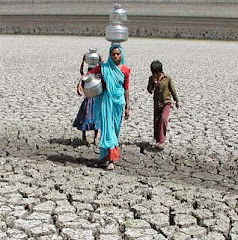A committee set up by Indian Prime Minister Manmohan Singh has said the country would require investments to the tune of Rs 8,00,000 crore over the next 20 years to provide basic infrastructure services like water, wastewater and solid waste management.
To those who think the investment as huge, it would come as a surprise that this amount is about 20 per cent of the overall Rs 39.2 lakh crore (trillion) that the committee has said would be required to improve all basic urban infrastructure services during the next two decades.
Along with the investment, the government would need to undertake "major administrative reforms" to cope with the current rate of urbanization, said the high-powered expert committee (HPEC) on urban infrastructure led by one of India's leading economists Isher Judge Ahluwalia.
The body was formed by the Prime Minister in 2008 to estimate investment requirement for urban infrastructure services in the country. The committee submitted its report to Union Urban Development Minister Kamal Nath on March 7.
The committee recommended a regulatory regime for urban services at state levels to address challenges of not only pricing services correctly but also ensuring delivery of services and protection of the environment besides encouraging public private participation in service delivery.
In India, just about 64 per cent of urban population in India is covered by individual water connections compared with 91 per cent in China, 86 per cent in South Africa and 80 per cent in Brazil.
India's urban population is expected to increase from existing 350 million to 600 million by 2031. This population increase is expected to further put pressure in the country's dwindling water resources and the per capita water availability is expected to come down further from about 1730 cubic metre now to about 1240 by 2030.
The rapid growth of urbanization has compounded the problem of water scarcity in several Indian cities, where current demand is much higher than the supply. This has prompted several state governments to undertake water projects that seek to enhance supply for the growing population.
Indian companies in the water industry and even those with exposure to it should find this huge investment requirement an opportunity. The Government alone cannot come up with such huge amounts on its own.
This should clear the way for further participation from the private sector in the water industry, fast eing considered a sunrise industry by many. Public-private partnerships (PPP) should become the order of the day.
Tuesday, March 15, 2011
Committee says India needs Rs 800,000 crore to provide water, waste management services
Labels:
Manmohan Singh,
PM,
urbanization,
wastewater,
water investment
Subscribe to:
Post Comments (Atom)

.jpg)



No comments:
Post a Comment